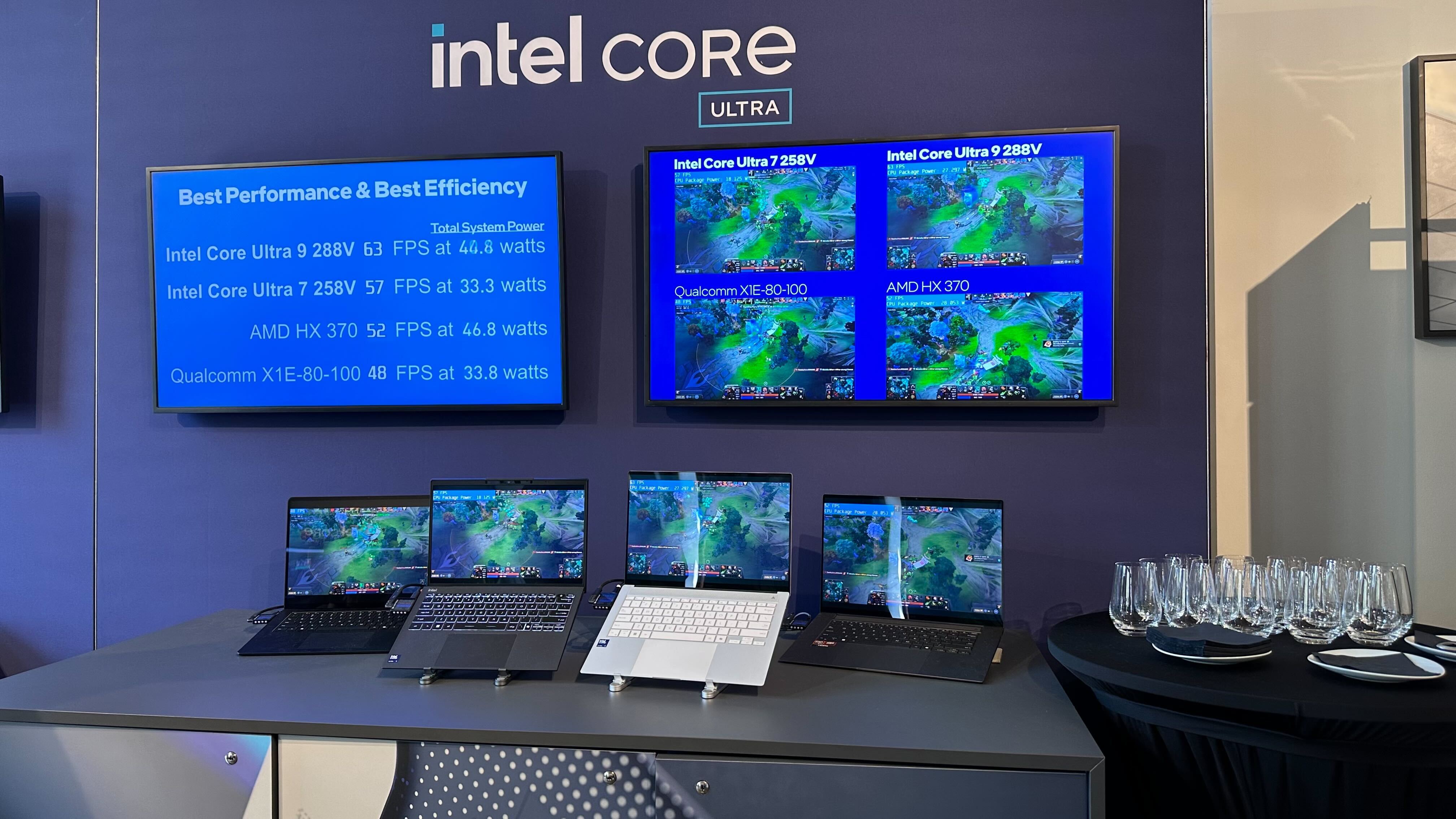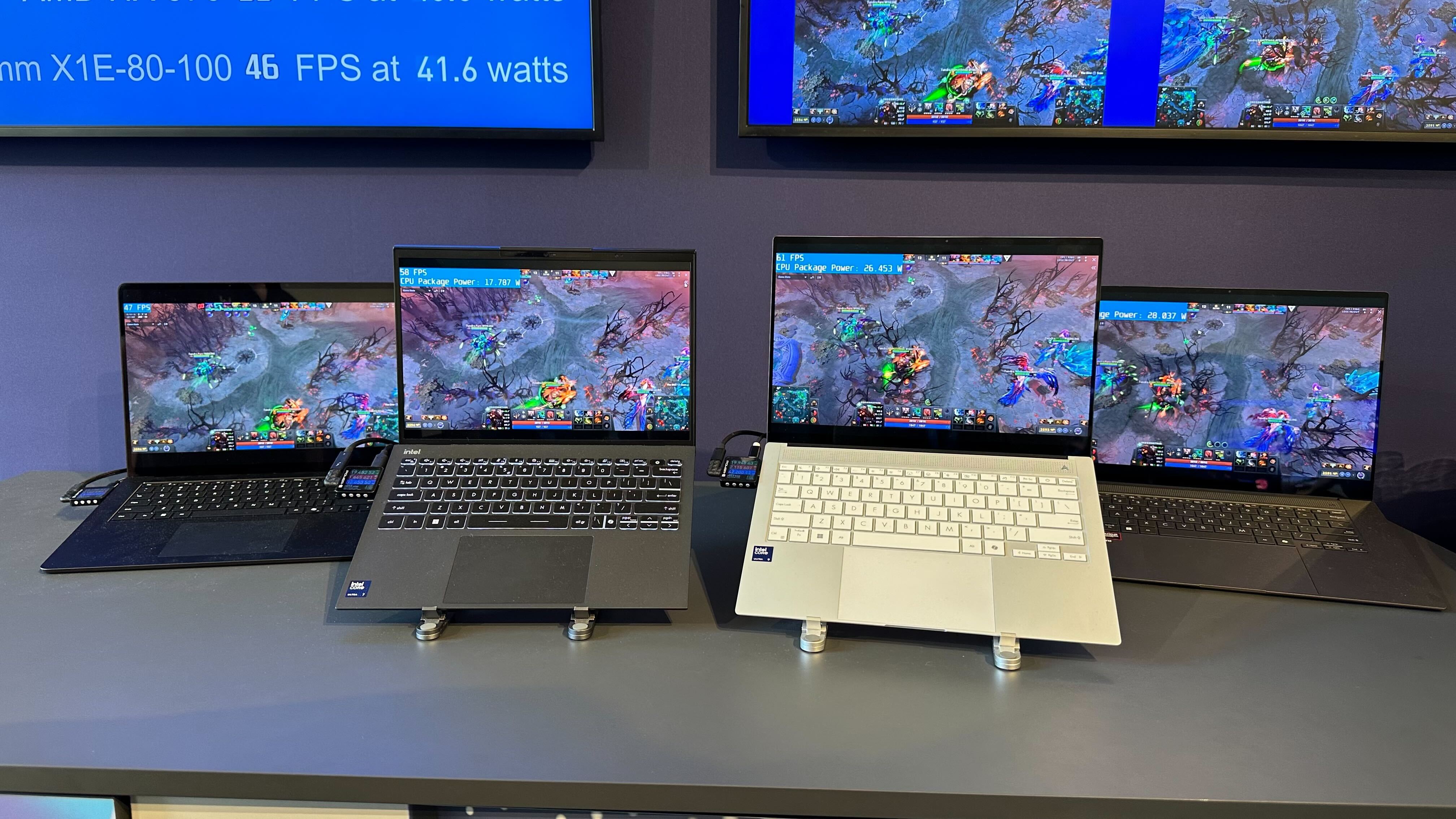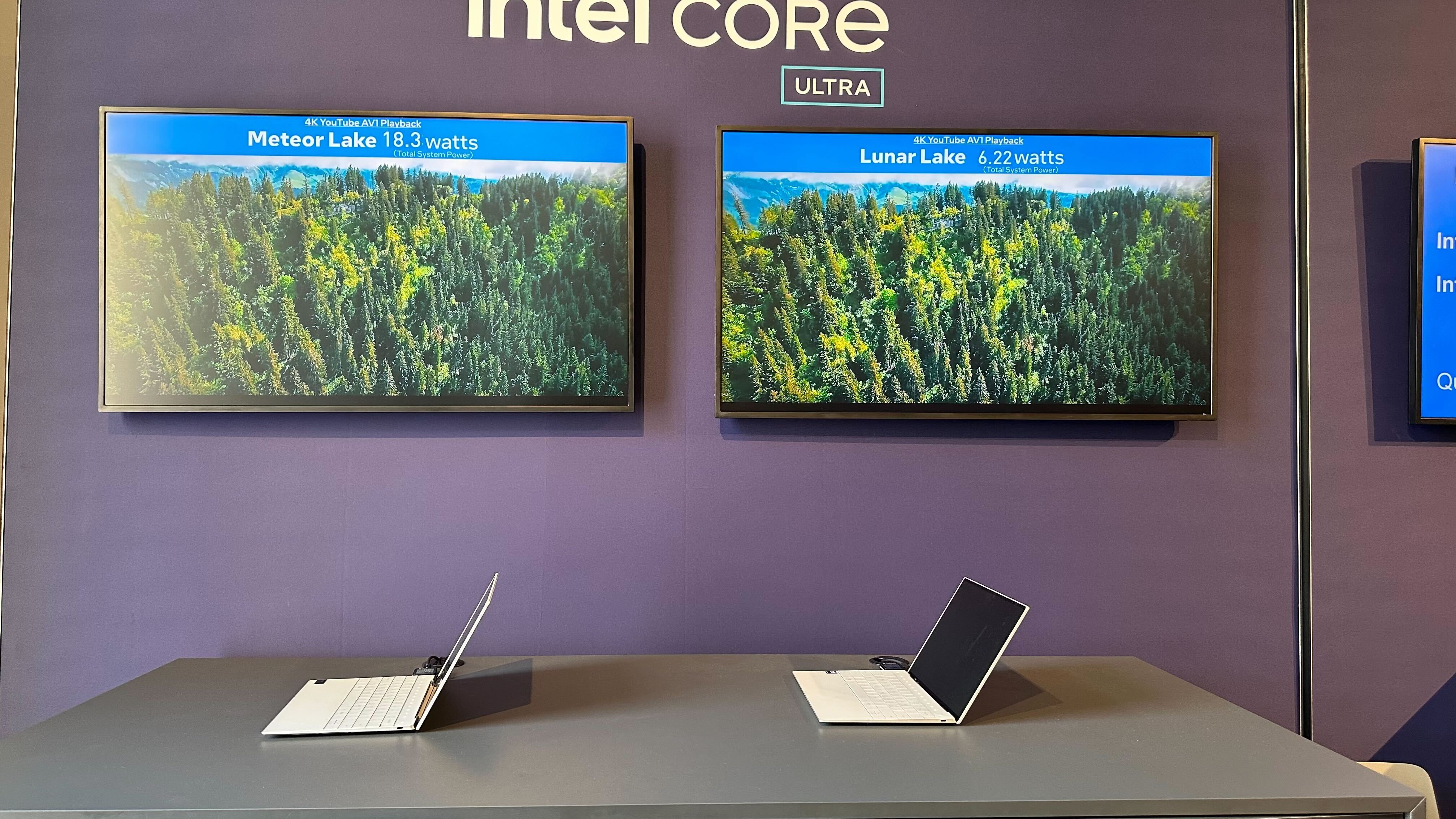The Dell XPS 13 Lunar Lake may steal the battery life crown from... the Dell XPS 13
A whole 26 hours of battery? The magic 8-ball we consulted says "reply hazy, try again"

Dell announced a new XPS 13 at IFA Berlin last week, powered by the new Intel Core Ultra 200V "Lunar Lake" processors. That shiny new XPS uses the same chassis as previous models, but the thing that makes it so interesting to us is the 26 hours of battery life Dell is claiming.
As we've previously discussed, the Dell XPS 13 9345 with the Qualcomm Snapdragon X Elite chip managed 19 hours and 1 minute on the Laptop Mag battery test, which wasn't too far off the initial claims made by Dell and Qualcomm. Dell claimed 27 hours of video playback for the XPS 13 9345, which is just above the 26 hours the company is claiming for the XPS 13 9350 with an Intel Core Ultra 200V processor.
Dell claims the XPS 13's battery life was based on streaming video at 1080p resolution using the Netflix Windows 11 app, with the display set to 150 nits and with wireless enabled. Obviously, there will be differences based on specific configurations and the type of battery test used, and the Laptop Mag battery test is a web surfing test as opposed to video playback, so it is unlikely our test labs will get a 26-hour battery life on the XPS 13 9350 with Intel Core Ultra 200V.
That said, the XPS 13 9350 with Intel Lunar Lake model could very well rival the XPS 13 9345 with Qualcomm Snapdragon X Elite for being our laptop with the best battery life.
While we don't have benchmarks for the new Intel Core Ultra 200V "Lunar Lake" chips yet, we can make a few predictions based on what we know about the processors' expected power draw.
How much power does a Lunar Lake chip use?


At the Intel Lunar Lake demo showcase ahead of IFA Berlin, I was able to take a look at two different power draw and performance demonstrations set up by Intel.
The first demo measured CPU power draw between the Intel Core Ultra 200V series, AMD Ryzen AI 300, and Qualcomm Snapdragon X processors. All four demo laptops were running the same scripted game in DOTA 2 with hardware monitoring software tracking the power draw of the CPU and the entire system while the game was playing on a constant loop. Intel claims that the sweet spot for Intel Core Ultra 7 200V performance is around 17 Watts of CPU power while the Intel Core Ultra 9 288V has the best power-to-performance ratio at about 30 Watts.
Sign up to receive The Snapshot, a free special dispatch from Laptop Mag, in your inbox.
The Intel Core Ultra 7 258V demo model showed a CPU power draw of 17.787W to keep the gaming running at 58 fps. The Intel Core Ultra 9 288V model showed a CPU power draw of 26.453W to achieve 61 fps on the scripted game encounter. The Ryzen AI 9 HX 370 model was showing a CPU power draw of 28.037 Watts to keep the game running at 52 fps.
Unfortunately, Qualcomm Snapdragon chips don't support internal CPU power monitoring, so all four systems were also using external power draw monitors to determine overall system power. The Intel Core Ultra 7 258V model was running with a total of 33.3 W, the Intel Core Ultra 9 288V model was running a total of 44.8 W, the Ryzen AI HX 370 was using 46.3 W, and the Qualcomm Snapdragon X Elite XIE-80-100 was using 33.8 W of power to maintain a framerate of 48 fps.
So the Intel Core Ultra 7 258V was using just 0.5 W less power for a much higher frame rate. That said, there isn't a massive difference in the overall system power between the two processors, which could mean good things for the XPS 13's projected battery life.
CPU Power and Battery life: Is there a correlation?

The second power demo I watched for the Lunar Lake launch in Berlin last week was specifically geared to streaming battery life. Intel set up two identical XPS models running comparable Intel Core Ultra 100 "Meteor Lake" and Intel Core Ultra 200V "Lunar Lake" processors, streaming the same 4K videos from YouTube. The older "Meteor Lake" XPS was using 18.3 W of total system power to stream the 4K video while the "Lunar Lake" model was using just 6.22 W of total system power. So the Lunar Lake system was almost three times more power efficient while streaming.
Of course, CPU power draw is part of a system's total power usage, and there is a correlation between the wattage it takes to keep a laptop running during a specific task and its estimated battery life while doing similar tasks. However, it isn't the kind of thing that is easy to calculate. You can estimate battery life using total system power and the Watt-hour rating of the laptop's battery, but that's not always a guarantee as batteries don't discharge in equal measures over time and power draw has a tendency to vary, even when performing the same exact task over time.
That said, based on what we've seen so far, it seems likely the Dell XPS 13 9350 with Intel Core Ultra 200V "Lunar Lake" processors will make it to about 19 hours on our battery test, though obviously we'll have to test that claim in our lab.
More from Laptop Mag
- Did Kamala Harris wear these Nova H1 Audio Earrings during the presidential debate?
- The Apple Watch Series 10 might finally convince me to switch to an iPhone
- I'm giving MSI a second chance with the MSI Claw 8 AI+ and you should, too

A former lab gremlin for Tom's Guide, Laptop Mag, Tom's Hardware, and TechRadar; Madeline has escaped the labs to join Laptop Mag as a Staff Writer. With over a decade of experience writing about tech and gaming, she may actually know a thing or two. Sometimes. When she isn't writing about the latest laptops and AI software, Madeline likes to throw herself into the ocean as a PADI scuba diving instructor and underwater photography enthusiast.









